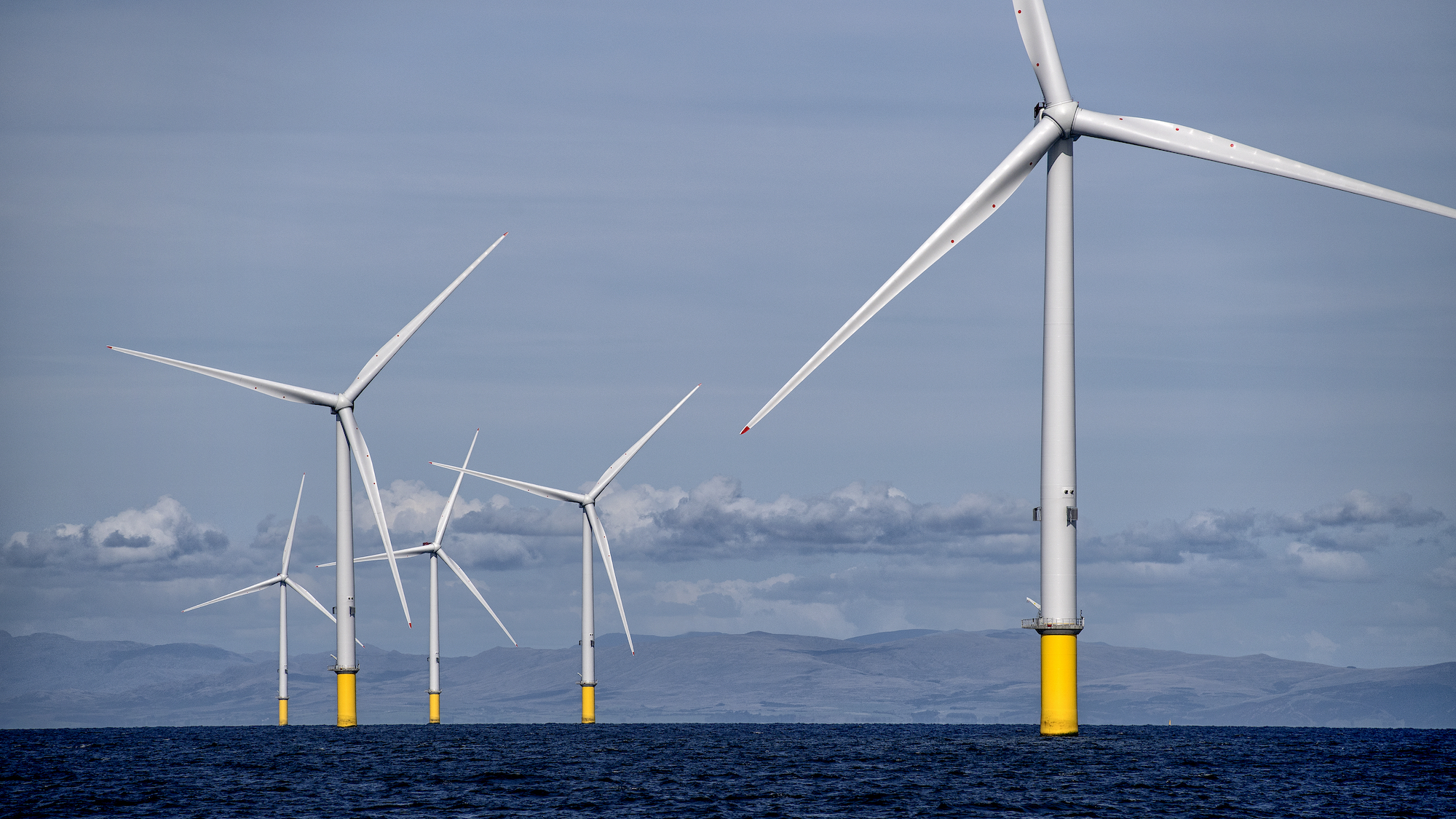

Back in 2015, the US Department of Energy estimated wind farms could supply over a third of the nation’s electricity by 2050. Since then, numerous wind turbine projects have been green-lit offshore and across the country. However, when it comes to building, it can get tricky, like in the case of a planned wind farm 15 miles off the southeast coast of Atlantic City, New Jersey.
Danish wind farm company Ørsted recently promised to cut New Jersey a $100 million check if the company’s massive Ocean Wind 1 offshore turbines weren’t up and running by the end of 2025. Less than a week after the wager, however, officials in the state’s southernmost county have filed a US District Court lawsuit to nix the 1.1 gigawatt project involving nearly 100 turbines, alleging regulatory sidesteps and ecological concerns.
[Related: The NY Bight could write the book on how we build offshore wind farms.]
According to the Associated Press, Cape May County government’s October 16 lawsuit also names the Clean Ocean Action environmental group alongside multiple seafood and fishing organizations as plaintiffs. The filing against both the National Oceanic and Atmospheric Administration and the Bureau of Ocean Energy Management claims that the Ocean Wind 1 project sidestepped a dozen federal legal requirements, as well as failed to adequately investigate offshore wind farms’ potential environmental and ecological harms. However, earlier this year, the Bureau of Ocean Energy Management released its over 2,300 page Final Environmental Impact Statement on Ocean Wind 1, which concluded the project is responsibly designed and adequately protects the region’s ecological health.
An Ørsted spokesperson declined to comment on the lawsuit for PopSci, but related the company “remains committed to collaboration with local communities, and will continue working to support New Jersey’s clean energy targets and economic development goals by bringing good-paying jobs and local investment to the Garden State.”
[Related: A wind turbine just smashed a global energy record—and it’s recyclable.]
Wind turbine farm companies, Ørsted included, have faced numerous issues in recent years thanks to supply chain bottleneck issues, soaring construction costs, and legal challenges such as the latest from Cape May County. Earlier this year, Ørsted announced its US-based projects are now worth less than half of their initial economic estimates.
Other clean energy advocates reiterated their support for the New Jersey wind farm. In an email to PopSci, Moira Cyphers, Director of Eastern Region State Affairs for the American Clean Power Association, described the lawsuit as “meritless.”
“Offshore wind is one of the most rigorously regulated industries in the nation and is critical for meeting New Jersey’s clean energy and environmental goals,” Cyphers continued. “Shore towns can’t wait for years and years for these projects to be constructed. The time to move forward is now.”